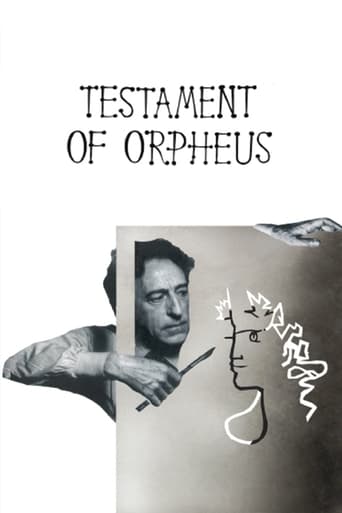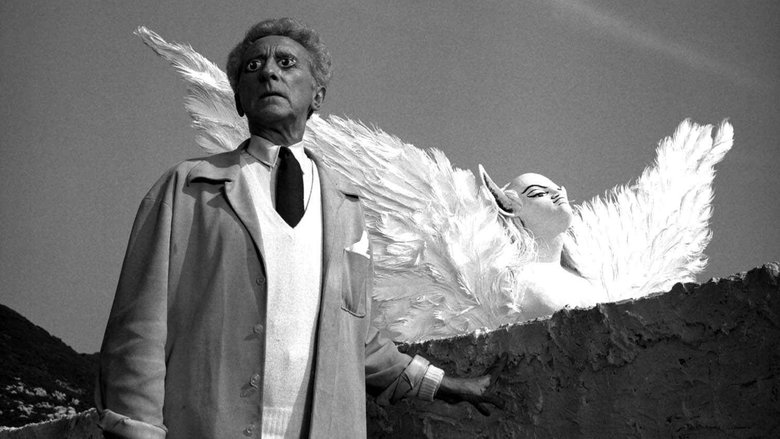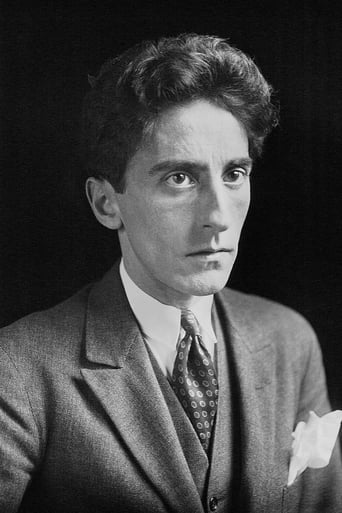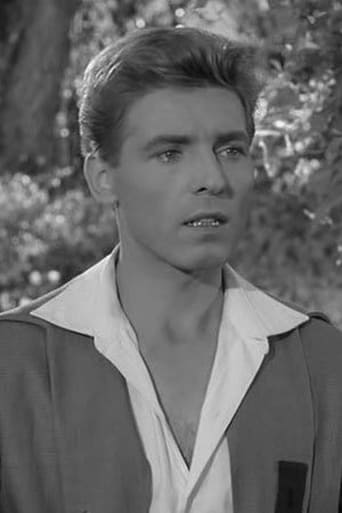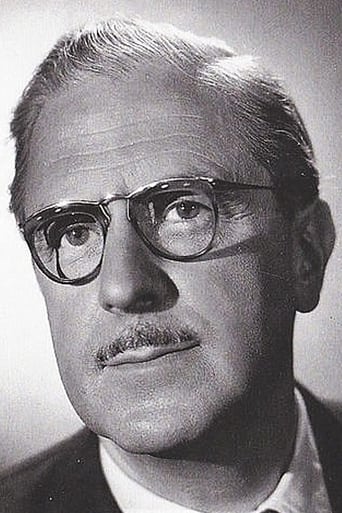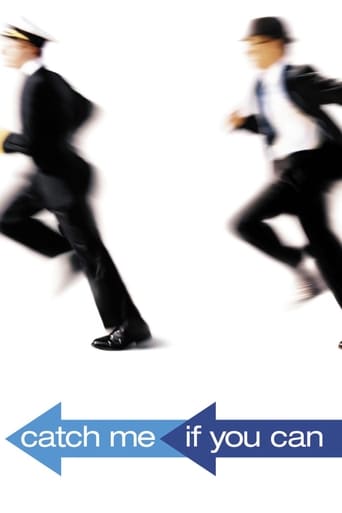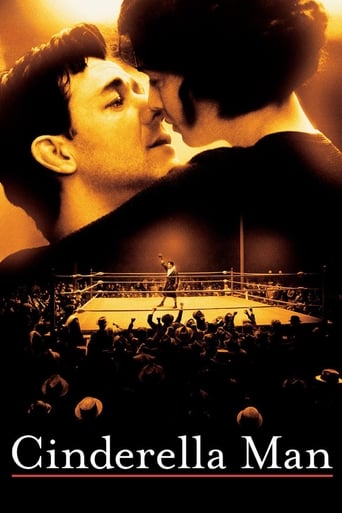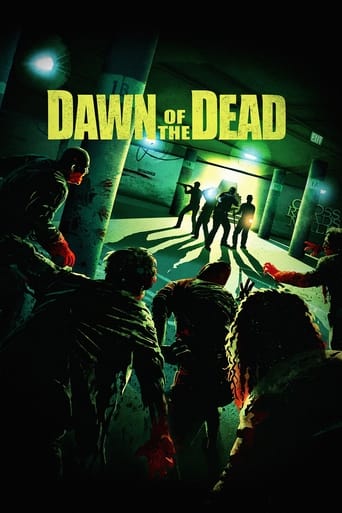Testament of Orpheus (1962)
Outside time and reality, the experiences of a poet. The judgement of the young poet by Heurtebise and the Princess, the Gypsies, the palace of Pallas Athena, the spear of the Goddess which pierces the poet's heart, the temptation of the Sphinx, the flight of Oedipus and the final Assumption. This film is the third part of Cocteau's Orphic Trilogy, which consists of The Blood of a Poet (1930), Orpheus (1950) and Testament of Orpheus (1960).
Watch Trailer
Cast


Similar titles
Reviews
Best movie of this year hands down!
Purely Joyful Movie!
Good films always raise compelling questions, whether the format is fiction or documentary fact.
It really made me laugh, but for some moments I was tearing up because I could relate so much.
As I stared at Picasso, he stared at me the same way. But let's not start browsing the newspaper by reading the sports news. This is the last film of Cocteau, film, marked by the built in time style and it constitutes a legacy of Orpheus, the way it is will or inheritance, if you will, of the director himself.As the third part of the trilogy, it is the walking of a full circle in the human being done in two ways - on a personal level, from childhood and the first life, old and last life and historically, from mythology to science and modernity. On foreground is the idea of the fateful moment in our existence, the intersections of our past, present and future existences, still seeking their own sense separated from one another, and the constant questioning of the miracle of the human presence. Poetry and science, holding hands, are grinding up to interfere in the mysteries of the mythological story. Their results are not greatly productive, but they are and give comfort to those who have been vocated to them. We are shown the most severe a burden and that is to being a judge of others and instead of indulging in space-time, to get security logic and predictability. Somewhat Kafkasian, those who stand before the law, are waiting their trial. The director shows his ability to see the development of different actions and characters in a long time plan, and also provide his place into them.The development of action shows us that more important are the desire and ability than the effect and power of cash rivers. To such titles we can turn only to sigh, because they are uttered as pieces of rock of the time and the history of cinema that are long forgotten and kicked out of the way of modern man that took a sharp turn, passing them with their topless cars.http://vihrenmitevmovies.blogspot.com/
I haven't seen any other features from Jean Cocteau, so many of the subtleties and references were lost on me. As such I didn't entirely understand all that occurred. It seems to be the final part in a loose trilogy of films based around the myth of Orpheus. In it, Cocteau himself plays a time-travelling poet, basically himself, who reflects on his life's works. He wanders a fantastical land and encounters various characters from his works of fiction. It's not a plot-driven film at all. It is more of a personal voyage of the director's. It was the last film he made and is clearly intended as a swansong, and a summary of his work.The film often works best when it is at its most surreal. Many of the effects are extremely simple, yet beautifully executed. For instance the part where Cocteau reconstructs the flower bit by bit is very nice; likewise when Orpheus leaps out of the sea. Towards the end there is even a very striking invasion of the colour red, that can't help but be very memorable imagery. There are moments of the bizarre sprinkled throughout the picture. Like Cocteau himself says it is all cinematic poetry. Most of it was over my head I have to say but it was an interesting watch all the same.
The third film in the so-called Orphic Trilogy of Jean Cocteau, Testament Of Orpheus (Le Testament D'Orphée, Ou Ne Me Demandez Pas Pourquoi!), is also the third film in The Criterion Collection release boxed set, and while it's the best of the trio it's nowhere near a good film. It does have perhaps the best scoring, and a dozen or so moments in its eighty minutes that have some spark of creativity, but Cocteau is so narcissistic and the film so self-indulgent and replete with outdated special effects, such as Cocteau running film in reverse on numerous occasions, that one feels almost embarrassed for him. Also, the previous two entries in the trilogy set the bar so low that Cocteau did not really have to do much to improve upon their failures, and he didn't do much.Despite his claims to the contrary, Cocteau was certainly no poet of any stature, and his lack of writing skill can be seen in this undeniably dreadful screenplay, loaded with the most clichéd claims about poetry and art, and the most banal and absurd imagery imaginable- even as Cocteau believes it is deep. Part of the odd charm of the film, and its predecessors, is that Cocteau really does believe the crap he spews. At one point in the film he even states, 'It is the unique power of the cinema to allow a great many people to dream the same dream together and to present illusion to us as if it were strict reality. It is, in short, an admirable vehicle for poetry.' Not only is the sentiment false and highfalutin', but it's read by Cocteau with such earnest inanity that one wonders whether he really could believe such tripe and not have to restrain a guffaw.Testament Of Orpheus is the least embarrassing of the so-called Orphic Trilogy, but it still does not rise above the sci fi schlock of the 1950s, films which often had bold premises, but failed merely in technical and acting aspects. This film is not even bold. It's puerile and trite, and Cocteau is an embarrassment to all real poets. The cinematography by Roland Pontoizeau is often framed poorly, and the music by Georges Auric is woefully inappropriate in many places. Had Cocteau actually been a real artist, this film, and perhaps the whole trilogy and his canon, may have been intriguing glimpses into meta-film, decades before the twin banes of Abstract Expressionism and Postmodernism dulled contemporary painting and literature. Even the often repetitive Charlie Kaufman scripted films of recent years are leagues ahead of this garbage, in terms of narrative twists, depth, and real characterization. Instead, Cocteau was a jack of all arts, and a master of none, a narcissistic unwitting walking cliché in the flesh. I tire of apologists for this sort of manifestly bad art who always try to claim that a work of art that is so terrible is simply 'too deep', or any other such nonsense, to be properly critiqued. While truly great art has often been dismissed in this manner by bad critics, Testament Of Orpheus is not only not great art, but manifestly bad art. Its premises and claims are easily seen through, for they are so shallow, and that is what kills it as a film. One can only wonder what part they had in Cocteau's demise. One can dream, can't one?
There are nice ideas in this final film by Cocteau. It's a pity he made it in 1959: there had already been Bunuel's l'Age d'or (1930) and Un chien andalou (1929), Bergman's Wild Strawberries (1957) and The Seventh Seal (1957) that are all brilliant. Not to mention Cocteau's own Sang d'un poete (1930!), in which the relatively simple technical ideas of Testament d'Orphee were already worked out and even better too. Cocteau utilizes terribly slow motion and awkward backwards play. Where Orpheus was ambitious, this is mere pretentious. The acting is mediocre, despite the interesting cast (Cocteau, Brynner, Picasso). Testament is less thought provoking and less surprising than what I hoped for, but nevertheless worth a try. Perhaps I wasn't in the mood for conversations about eloquence and poetry at the time. Still it is at least as interesting as Orson Welles' F for Fake (1975) in which Cocteau also appeared so prominently.7/10

